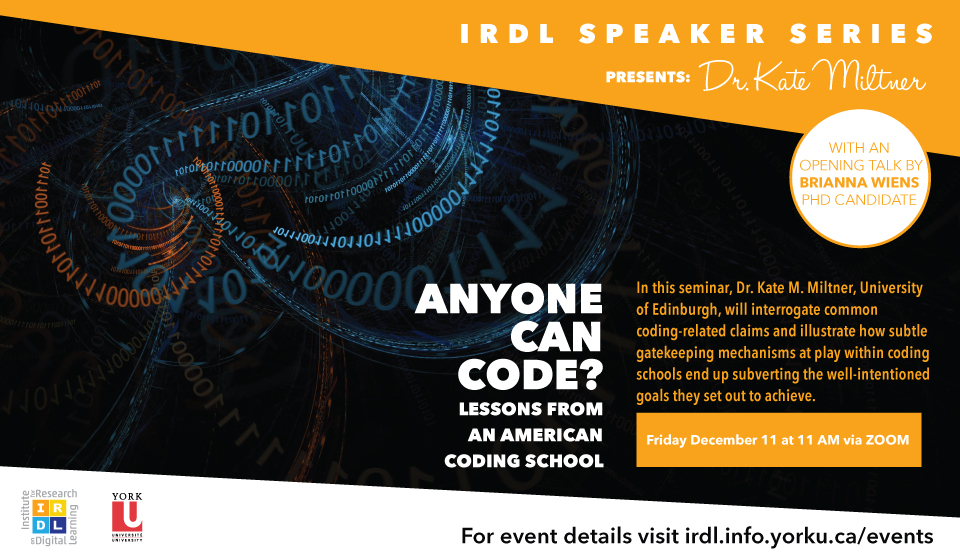Zoom
Over the course of the past decade, learning to code has been positioned as a silver-bullet solution to a variety of structural social concerns, including social mobility for the economically marginalized and the underrepresentation of women and minoritized racial groups within the tech industry. In response to this discourse, a growing industry of coding schools (or “bootcamps”) has developed across the globe, insisting that “anyone can code” and get a well-paid tech job with a few months’ intensive instruction. Drawing on a case study from an American coding school, this seminar will interrogate common coding-related claims and illustrate how subtle gatekeeping mechanisms at play within these schools end up subverting the well-intentioned goals they set out to achieve.
Register here to receive the Zoom invitation:
|
Share on Twitter:Click the image to share this event on Twitter
|
Bios
Dr. Kate M. Miltner’s research examines the circulation of power within digital contexts, with a particular focus on the (re)production of structural inequalities within sociotechnical cultures and institutions. Her current research explores the global “Learn to Code” phenomenon—what she calls “the coding fetish.” This research puts the current coding obsession into historical context, explores the structural power dynamics within coding schools in the United States and the United Kingdom, and investigates the outcomes for students who attend coding programs.
Dr. Miltner received her PhD from the Annenberg School for Communication and Journalism at the University of Southern California. She is currently engaged in post-doctoral research at the University of Edinburgh. Her publications address a variety of topics relating to inclusion and exclusion within digital cultures, including internet memes, animated GIFs, online antagonism, emoji, and big data. Her work has appeared in New Media & Society, Society, Technology and Human Values, Social Media & Society, International Journal of Communication, First Monday, Feminist Media Studies, and Mobile Media and Communication, as well as in Wired, Slate, The Atlantic, The Guardian, Time, and the BBC.
Brianna Wiens is a PhD candidate in Communication & Culture. Wiens’s research is motivated by intersectional, queer, and trans feminist politics and sits at the nexus of feminist technoscience, queer affect, and feminist new materialism. Wiens is a co-convener of the qcollaborative, an intersectional feminist research design lab. She is currently the lead research assistant on a SSHRC Insight Development project on digital aesthetic resistance and a HeforShe Impact study on collaborative and creative feminist approaches for building supportive communities for diverse groups of students across campus.







